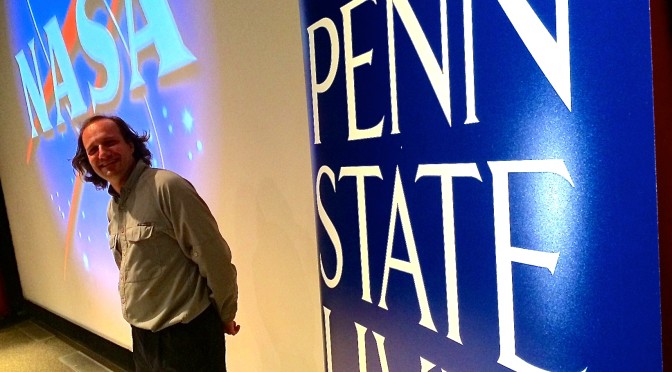Well, is it, or isn’t it?
Sometimes, science is all about not having the foggiest idea about how something happens, but trying really hard to find out the truth. It also means not being afraid to go in potentially weird directions.
Jason Wright, Penn State associate professor of astronomy and astrophysics, is doing just that. He’s one of the astronomers trying to find out if — set the synthesizer on spooky and cue the weird music — a giant alien structure is causing the weird dimming of a star called KIC 8462852, better known as Tabby’s Star.
Located about 1,500 light-years from Earth, Tabby’s Star has undergone rapid and erratic dimming that typical cosmic phenomena — a rotating planet, for example, or comets — may not explain. While not proven or even likely, Wright suggests that an alien megastructure cannot be taken off the table as a possibility.
In this chat at the SETI Institute, (the Search for Extraterrestrial Intelligence Institute), Wright offers more information about Tabby’s Star and what it might — and might not — mean for the search for extraterrestrial intelligence.
Members of the news media interested in talking to Wright should contact Barbara Kennedy at 814-863-4682 or bkk1@psu.edu.


